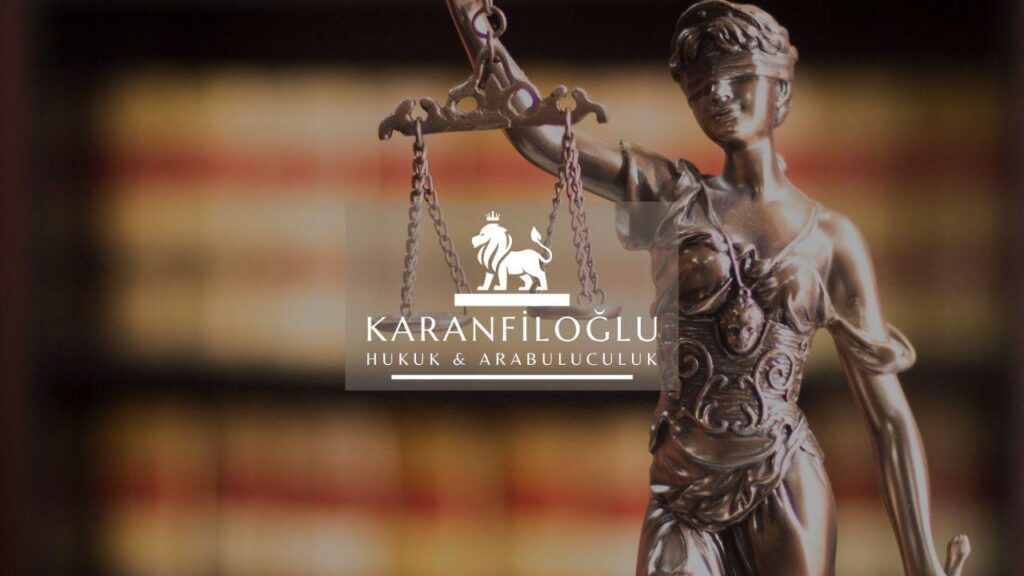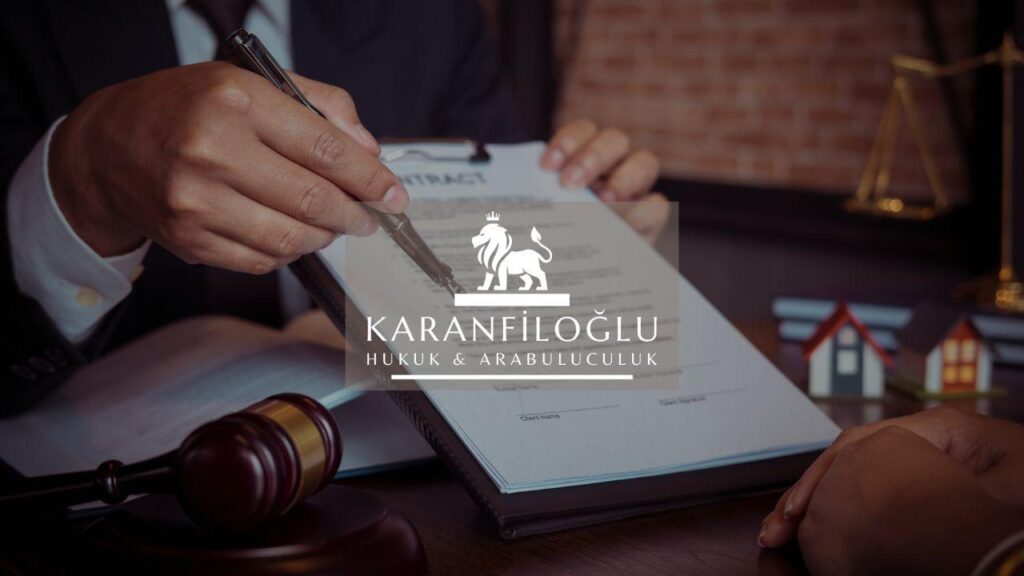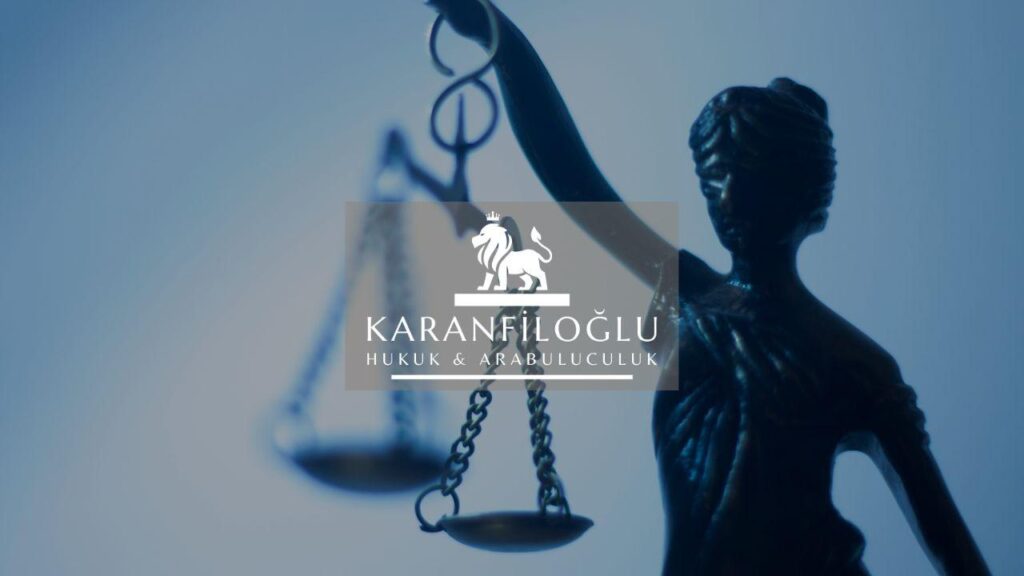In the dynamic landscape of Turkey’s real estate market, understanding the intricacies of condominium law is crucial for potential buyers and investors. At Karanfiloglu Law Office, we recognize that purchasing a condominium can be a significant investment, laden with both promises and complexities. Condominium law in Turkey, governed primarily by the Condominium Law No. 634, outlines a framework intended to protect the rights of buyers while ensuring fair conduct between all parties involved. This specialized area of law addresses essential considerations, from ownership rights and obligations to the management of shared facilities and common areas. As a potential buyer, comprehending these legal rights is paramount to safeguarding your investment against unforeseen disputes. Our expert legal team is committed to navigating you through this process, ensuring that your rights as a buyer are meticulously upheld, and providing you with the confidence needed to make informed real estate decisions in Turkey.
Understanding Your Rights as a Condominium Buyer in Turkey
As a prospective condominium buyer in Turkey, it is essential to familiarize yourself with the legal safeguards embedded within the Condominium Law No. 634. One of the primary rights bestowed upon buyers is the assurance of acquiring a property with legally clear title deeds, ensuring that the sale is free from any undisclosed encumbrances or third-party claims. Additionally, buyers have the right to be fully informed about the property’s technical plans and specifications, which include detailed information on the size, quality, and materials used in construction. Transparency is further mandated through the requirement that developers provide comprehensive documentation regarding the management plan of common areas and shared facilities, allowing buyers to understand any ongoing financial or maintenance responsibilities. At Karanfiloglu Law Office, we guide our clients through these legal intricacies, ensuring that these rights are fully understood and exercised, thus providing a solid foundation for your real estate investment in Turkey.
Moreover, Condominium Law No. 634 grants buyers the right to participate in the management of the property, fostering a sense of community investment and responsibility. As a buyer, you have a voice in the condominium’s management decisions, such as determining maintenance budgets, upgrading shared amenities, or addressing any disputes among residents. Additionally, the law provides protection against arbitrary changes in the terms of the management plan and ensures that any significant amendments can only be made with the consensus of the condominium owners. This collaborative approach not only secures your financial interests but also promotes transparency and mutual respect among all stakeholders involved. At Karanfiloglu Law Office, we emphasize the importance of active participation in these management activities, guiding you in negotiating your involvement so your rights and interests are adequately represented.
In the event of disputes or issues arising after the purchase, understanding your legal recourse is crucial. Condominium buyers in Turkey have the right to seek legal remedies under the provisions of Condominium Law No. 634, which addresses resolutions through mediation or court proceedings. Challenges such as construction defects, non-compliance with the management plan, or conflicts with other owners can be resolved through legal channels, providing buyers with assurance and protection. At Karanfiloglu Law Office, we prioritize your peace of mind by offering expert legal support to address any post-purchase issues that might arise. Our team is dedicated to ensuring that you are equipped with the necessary legal tools to navigate disputes effectively, upholding your rights and safeguarding your investment throughout your ownership experience in Turkey’s vibrant real estate market.
Key Legal Considerations for Prospective Buyers
When considering the purchase of a condominium in Turkey, one of the foremost legal considerations is conducting a thorough due diligence process. This involves verifying the property’s legal status, including its registration in the Land Registry as a condominium, ensuring there are no encumbrances such as debts or mortgages, and confirming that the seller possesses the legal authority to sell the property. Prospective buyers should also review any existing condominium management plans, which outline rules regarding the use of common areas, maintenance responsibilities, and shared expenses. It is essential to understand these details to avoid potential disputes with other property owners and management associations. Consulting with a legal expert, such as those at Karanfiloglu Law Office, can provide invaluable insights, helping buyers assess and address any potential legal issues that could impact their investment. Empowering prospective buyers with this critical knowledge ensures a smoother transaction process and a secure acquisition of property rights.
Another vital consideration is the clarity and specificity of the sale agreement. In Turkey, the sale agreement should encompass not only the purchase price and payment schedule but also detailed terms related to the rights and obligations of the buyer and seller. It’s crucial for this document to explicitly state the condition of the property at the time of sale, any warranties provided by the seller, and the timeline for transferring the title deed. A well-drafted agreement will also cover the remedies available to parties in case of a breach. Given the potential complexity and legal nuances involved, it is highly advisable for buyers to engage professional legal services, such as those offered by Karanfiloglu Law Office, to review and negotiate these contracts. By doing so, buyers can safeguard themselves from potential risks and ensure that their investment is protected, aligning with their financial goals and expectations in the Turkish real estate landscape.
Additionally, understanding the dispute resolution mechanisms available in the event of a conflict is pivotal for any prospective condominium buyer in Turkey. The Condominium Law provides specific avenues for resolving disputes that can arise between owners, or between owners and the management association. These could range from disagreements over maintenance fees and the use of common areas to more significant issues like unauthorized alterations to the structure. Navigating these disputes necessitates a clear understanding of your legal standing and the processes involved, which can be complex and time-sensitive. It is, therefore, prudent for buyers to seek advice from experienced legal professionals, like those at Karanfiloglu Law Office, who can guide them through mediation, arbitration, or litigation proceedings as necessary. Securing adept legal support not only aids in achieving favorable outcomes in disputes but also reinforces the protection of your investment and enhances your overall buying experience in Turkey’s real estate market.
Navigating the Turkish Condominium Property Market
Navigating the Turkish condominium property market requires a careful understanding of several key legal considerations. Prospective buyers must be aware of the different ownership types, such as full ownership or shared ownership, which can significantly impact their rights and responsibilities. Furthermore, it’s essential to verify the developer’s compliance with Turkish legal standards, including acquiring the necessary permits and adhering to specific building regulations. The due diligence process in Turkey also involves a thorough assessment of condominium documents, such as management plans and maintenance agreements, to understand obligations related to common property management and costs. At Karanfiloglu Law Office, we provide guidance on these intricacies, ensuring that each step of the purchase process aligns with statutory requirements, thus minimizing risks and protecting our clients’ interests.
A critical aspect to consider in the Turkish condominium market is understanding the financial obligations that come with owning a unit. Buyers should familiarize themselves with the monthly maintenance fees, which fund the upkeep of common areas and shared facilities. It’s also important to anticipate potential special assessments for significant repairs or improvements, which can impact the overall affordability of the property. Another key element is the clarity of contract terms, including provisions that outline both the rights and duties of the unit owners and the condominium management. Ensuring these terms are transparent and equitable is crucial to avoiding future disputes. At Karanfiloglu Law Office, our legal experts are adept at evaluating these financial and contractual elements, offering comprehensive support to help buyers make informed decisions that reflect the full financial picture and legal commitments tied to their investment.
Lastly, understanding the resolution mechanisms for disputes is vital for any buyer navigating the Turkish condominium market. Disputes may arise from a variety of issues, such as the interpretation of management plans or the allocation of expenses for common areas. Turkish condominium law offers several routes for dispute resolution, including mediation, arbitration, and litigation. Each of these options has its own advantages and can affect the timelines and costs involved in resolving conflicts. At Karanfiloglu Law Office, we assist our clients in selecting the most appropriate and efficient pathway tailored to their specific circumstances. We also advocate on their behalf in negotiations and legal proceedings, striving to reach favorable outcomes. Our commitment to defending our clients’ rights ensures that they not only secure ownership but also maintain harmonious living arrangements within condominium settings.
Disclaimer: This article is for general informational purposes only and you are strongly advised to consult a legal professional to evaluate your personal situation. No liability is accepted that may arise from the use of the information in this article.







